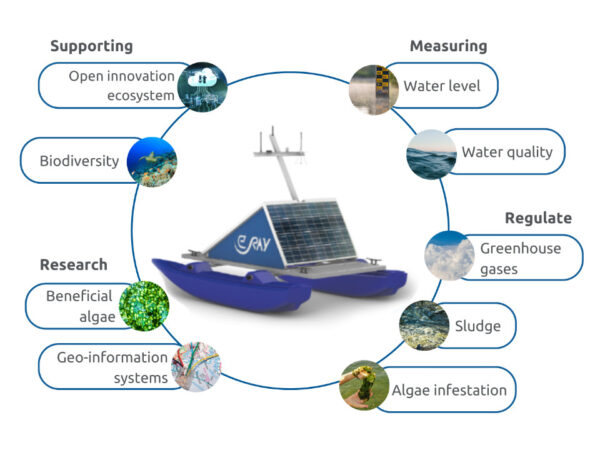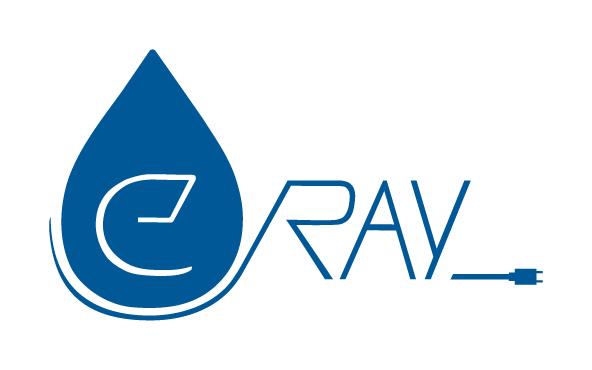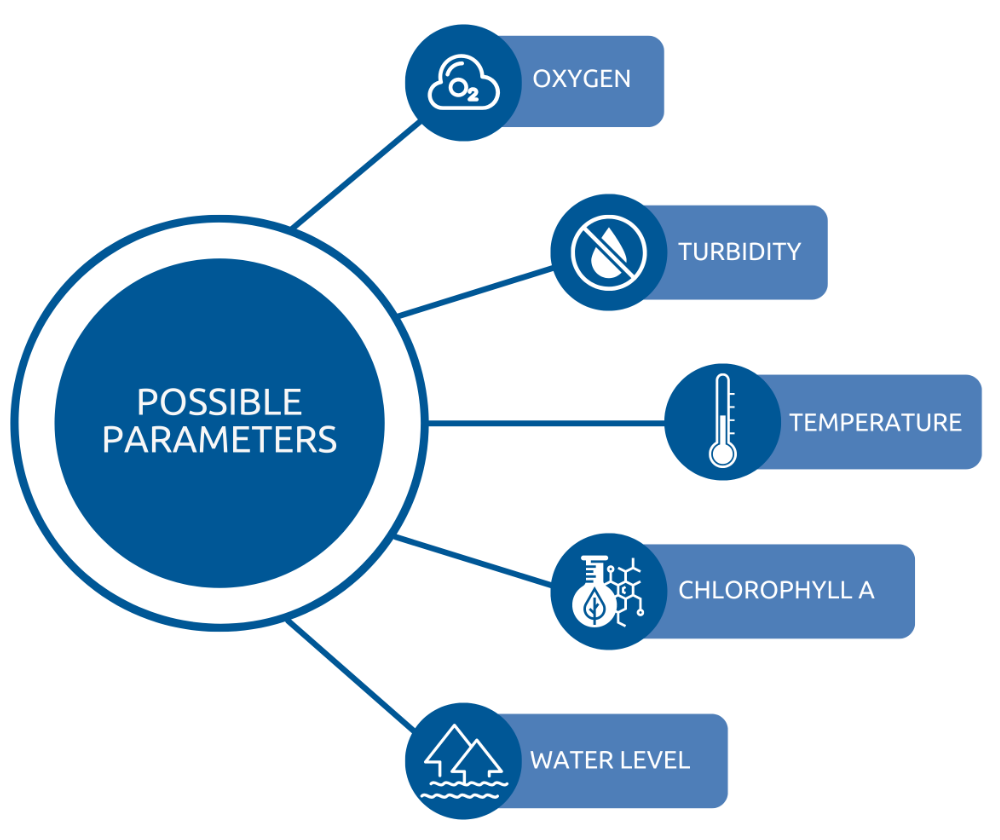Understanding Waters
Our lakes are more than just water-filled cavities. They are habitats for a variety of organisms and provide us with places for recreation and relaxation. Unfortunately, the condition of most German bodies of water is deteriorating year by year. It is precisely this trend that we want to reverse.
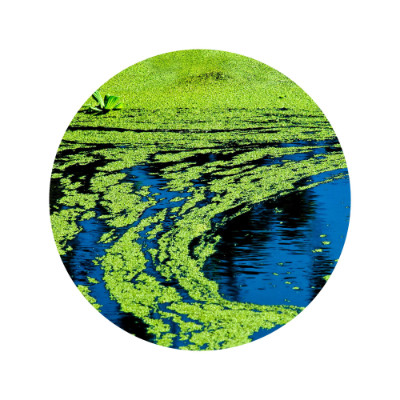
Toxic algae blooms
Algal blooms, often caused by nutrient overload, can produce toxins that are harmful to humans and animals.
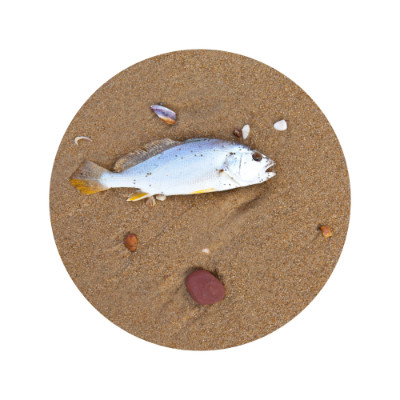
Fish die-off
Causes for sudden, massive fish die-offs can include oxygen depletion, pollutants, or even diseases.
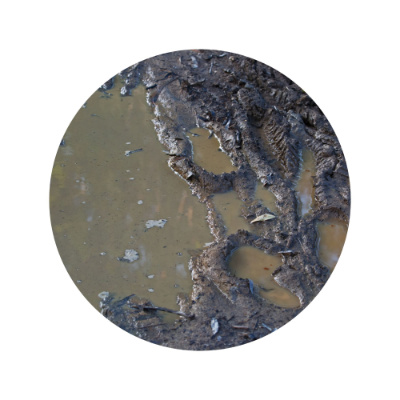
Anaerobic Sludge
Anaerobic sludge forms through the decomposition of organic material under oxygen-depleted conditions and can negatively impact aquatic ecology.
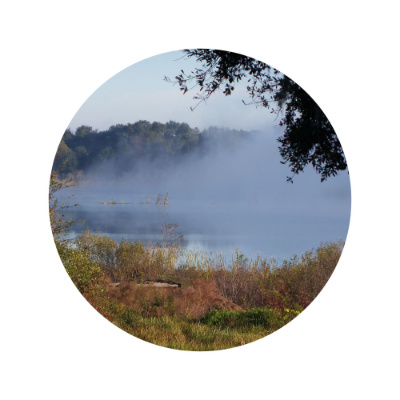
Global Methane Source
Freshwater bodies are the Earth’s largest source of methane (IPCC). Methane is produced through the decomposition of organic materials or by algae blooms.
Over 90% of the German bodies of water are in poor condition.
Source: Federal Environment Agency Germany
Germany’s bodies of water are heavily threatened by eutrophication and harmful algal blooms. Warming exacerbates these issues further. The EU Water Framework Directive calls for a swift improvement in the state of water bodies. The Climate Adaptation Act and the Nature Restoration Act set clear goals for restoration and climate resilience. Now is the time to take determined action and preserve our waters for future generations.
Understanding Lakes as Ecosystems
Many of the processes and interactions in open inland waters are either not yet researched or insufficiently studied. Measures against the deterioration of water quality are often expensive and are insufficiently tested for their effectiveness. Our aquatic bodies are complex ecosystems, and their precise interactions with their environment still need to be understood. For this purpose, continuous tracking is the first step towards efficient water management.
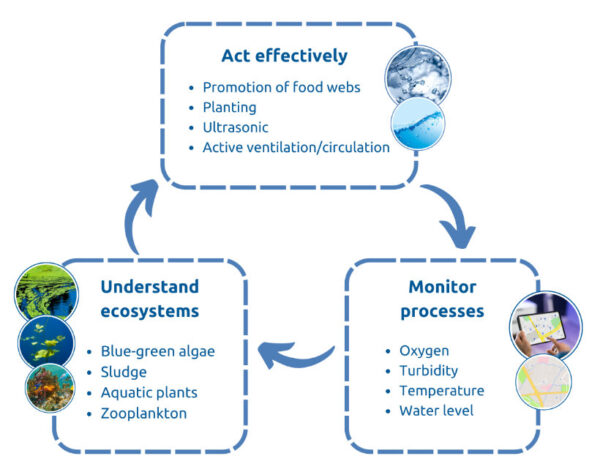
Greenhouse gas emissions from freshwater lakes likely account for 20% of all global CO2 emissions from fossil fuels released into the Earth’s atmosphere.
WAMO – the first open platform for water management.
Our measurement boat WAMO (Water Monitor) is the first platform that is manufacturer-independent, equipped with multispectral sensors and other applications. It can be deployed throughout water bodies without external power supply, even in extreme weather conditions. WAMO is designed to withstand strong currents, is robust against vandalism, and can measure at various depths as needed.
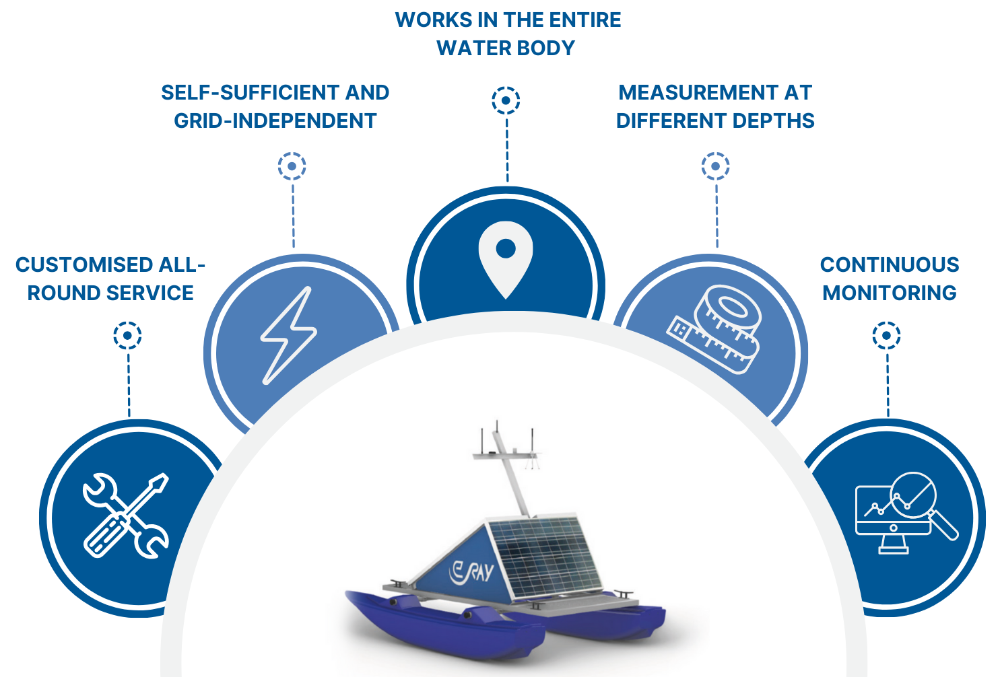
WAMO helps to monitor all (urban) water bodies. Depending on the condition of the water body, intervention can occur at the right moment to counteract issues like toxic algae blooms that have devastating effects on humans and animals. The measurement is precise, yet completely straightforward for you. The effectiveness of each action is accurately recorded, and readjustment at the right moment is always possible.
All data always at your fingertips.
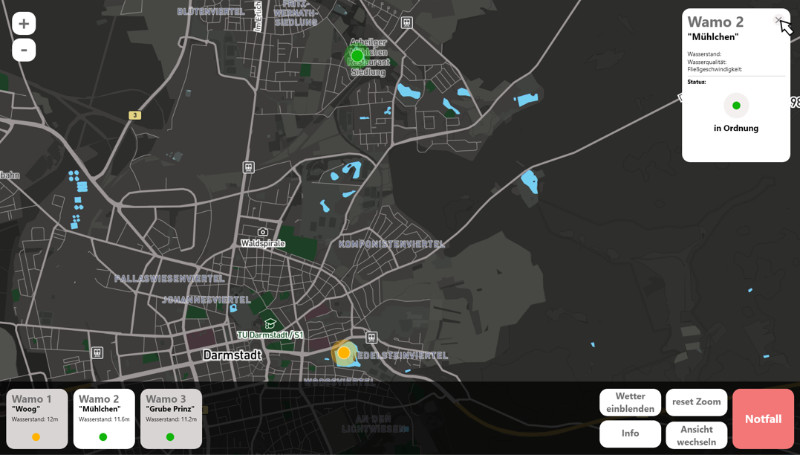
WAMO, the platform for water monitoring, brings the measurement of important water parameters into the 21st century. It not only combines real-time measurements of water quality or water level but also makes them accessible from anywhere.
Free selection of water parameters
The choice of measurement device is up to you. We recommend, for example, using the spectro::lyser from s:can. The probe is low-maintenance and energy-efficient, as the UV-Vis spectrometer doesn’t have any moving parts. Since it’s a purely optical measuring device, there’s no need for reagents – this results in extremely low operating costs.
Your advantages with WAMO
-
Full-service support from installation to maintenance
-
Easy entry into water digitization, including data provision via web interface
-
Designed for extreme weather and flood conditions
